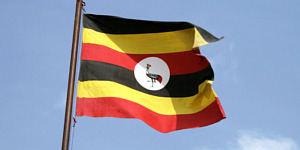Uganda's central bank left its Central Bank Rate (CBR) unchanged at 10.0 percent, saying inflation has developed in line with its forecast and conditions for inflation to remain close to its target of 5.0 percent in next 2 to 3 years have not changed to any great extent.
The Bank of Uganda (BOU), which had kept its rate steady since a 100 basis point rate hike in October last year, also said the country's economy was operating around its potential growth level of 6.0-6.5 percent although economic activity seems to be softening and downside risks to growth have risen, mainly those risks that revolve around unresolved trade tensions that are affecting global and domestic trade and investment activities.
Headline inflation in Uganda was steady at 3.0 percent in March and February while core inflation rose to 4.6 percent from 3.7 percent in the same period.
Although the outlook is unchanged compared with the February round of forecasts, BOU said medium-term inflation is slightly higher than earlier expected, with headline inflation and core inflation forecast to peak at 6.3 percent and 6.4 percent, respectively, in the third quarter of 2021.
In February BOU forecast headline and core inflation would peak at 5.5 percent and 5.3 percent in the first quarter of 2020.
Uganda's economy has been in an upturn since early 2017 and in financial year 2017/18, which ended July 1, 2018, the economy expanded by 6.1 percent and in February BOU forecast 6.3 percent growth in the current 2018/19 year, and remain on a steady growth trajectory in coming years.
In the third calendar quarter of 2018, gross domestic product was up 6.8 percent year-on-year, up from 5.2 percent in the second quarter.
Uganda's shilling has slowly appreciated since mid-2018 and was trading at 3,715 to the U.S. dollar today, marginally up from the start of the year.






































